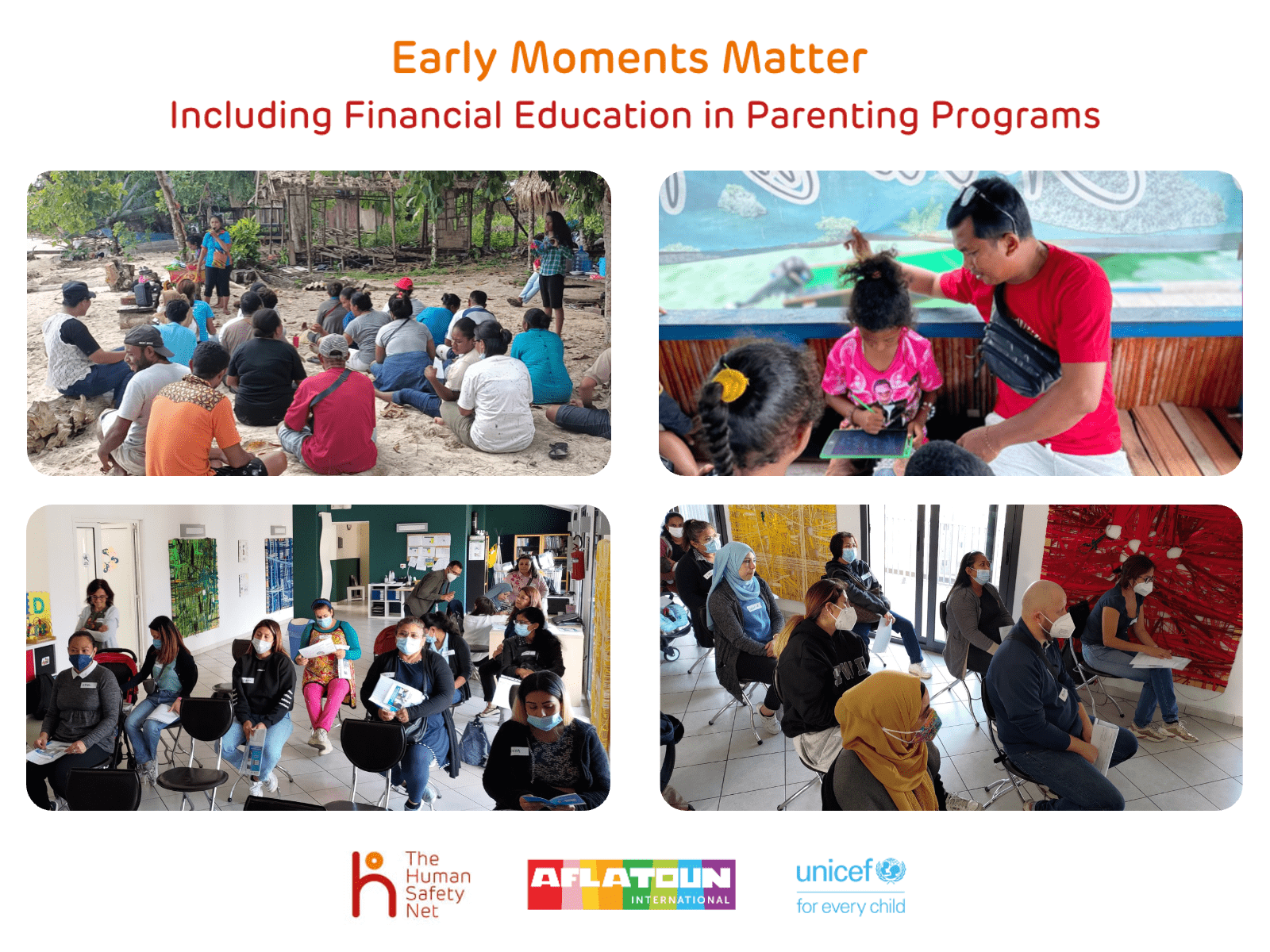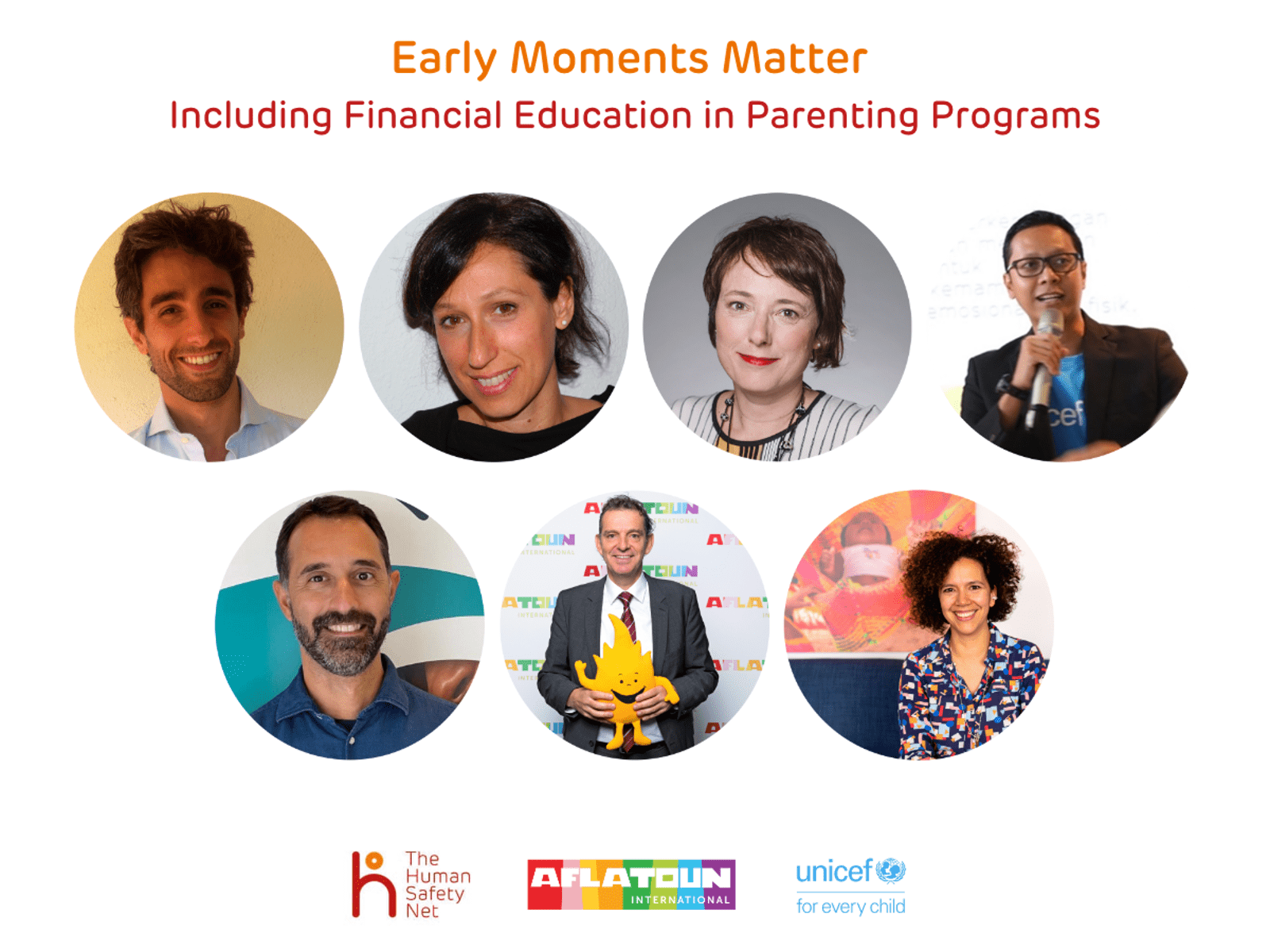The Human Safety Net for Families programme supports parents with young children living in socially and economically vulnerable conditions. These conditions negatively affect the parents and their children, hindering their development, especially in their early childhood years.
Among the most pressing issues parents face is the squeeze in costs of living, which so many communities face today across the world. In 2023, 71 million more people are estimated to be at risk of poverty because of cost-of-living increases, according to the World Economic Forum. As a result, correct financial management and financial education become fundamental to support parents in balancing the books at home and planning correctly for their future and that of their children.
Financial education – specific techniques, strategies and concrete ideas that parents can adopt in their everyday life to manage their resources better - becomes particularly effective when combined with other programmes and activities that support parents in interacting with and growing their children.
According to the latest Standard & Poor's Ratings Services Global Financial Literacy Survey, a large part of the adult population is financially illiterate. In low- and middle-income countries, financial literacy rates range from 20 to 40%. Some high-income countries show similar rates, with only four out of ten adults financially literate in Italy. Translated to the family situation, that suggests that most parents worldwide lack the skills to make financial decisions that affect the well-being of their children. Young parents living on low incomes have the lowest financial literacy levels, as shown by the study carried out by Aflatoun.
At an online event held on March 29th, 2023, representatives from The Human Safety Net, UNICEF and Aflatoun presented the evidence from the pilot projects started over one year ago in Italy and Indonesia. The partnership was made possible by a joint contribution of Generali and employees' donations relating to We SHARE, the Group's share ownership plan.
Financial education modules were integrated into the parenting programs using a traditional and digital approach. The pilot projects involved about 2,500 parents and children and trained over 80 educators in over 50 ECD centres in Indonesia and more than 80 parents in Milano (Italy), working with The Human Safety Net's NGO partners in Italy.
Key takeaways from the discussion are that local adaptation of the financial education modules is key to ensuring understanding and promoting behaviour change: working with local partner NGOs makes sure language, examples and tips are relevant and appropriate for the parents. In addition, educators must be adequately trained to feel at ease with financial education issues.
Leveraging on Generali's positioning and its employees' skills, and based on the encouraging results, The Human Safety Net expects to scale the project to other countries. First, the digital learning modules in Italian and Indonesian will soon be available on thehumansafetynet.org website.

en
it



